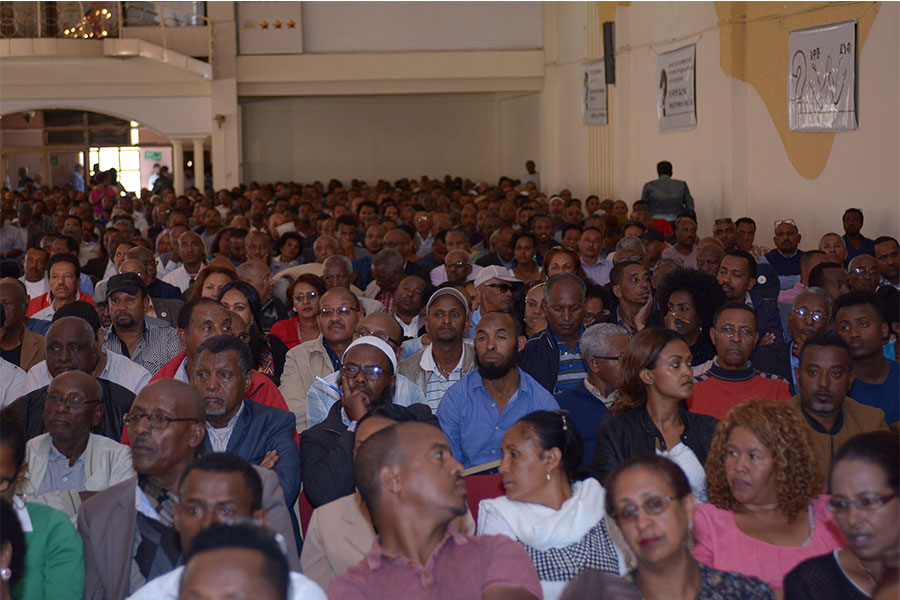
In a landmark move, federal legislators have enacted a sweeping law that promises to fundamentally transform the residential tenancies market, providing a reprieve for tenants with a precariousness of eviction threats and rent hikes. The legislative overhaul introduces minimum lease periods, caps on rent increases, and imposes taxes on vacant properties, signalling a seismic shift towards what the bill's authors argue is part of their more equitable housing policies.
Property owners are now mandated to offer lease contracts with a minimum duration of two years, a measure that aims to provide tenants with greater stability and predictability. The law introduces controlled rent increases, curbing the ability of property owners to raise rents arbitrarily in response to market fluctuations. Perhaps most notably, the legislation seeks to discourage property vacancies by allowing city administrations and regional states to levy up to 25pc as annual property taxes for homes that have not been occupied or rented out for more than a year.
"Not renting is dissuaded," said Gideon Timotheos (PhD), minister of Justice, concisely encapsulating the essence of the law.
His remarks demonstrated the authorities' determination to address the housing market's instability, which is characterised by short-term leases and unpredictable rent hikes.
Last week, the bill's swift passage reached the voting floor within a day of legislative discussions. According to the Justice Minister, it was a move meant to avert potential speculation in the housing market ahead of its voting. The law garnered substantial legislative support, receiving 241 votes in favour, with three abstentions.
Abebaw Desalew, an opposition MP who abstained during the vote, argued that broader economic factors contributing to the housing crisis must be addressed. He believes the new law focuses on rent control without responding to the root causes of the housing shortage.
"Addressing inflation, security problems, and declined productivity should take precedence," he told Fortune.
A report by the Center for Affordable Housing Finance in Africa released last year estimates that Ethiopia's housing demand would require close to 486,000 new urban homes each year. It suggests that the minimum average cost for a house is at least 8,000 Br, with the average size at 20Sqm. The high cost and small size of new homes paint a clear picture of a housing shortage.
However, the new law lays the groundwork for the Council of Ministers to introduce a fixed asset price evaluation regulation within the next year, a crucial step that will enable the regulation of rent prices moving forward. Officials expect agreements with current rent prices to be submitted in less than four months.
"The regulation will help dictate rent prices thereafter," the Minister said, recalling that the law codifies emergency measures taken during the Covid-19 pandemic—such as eviction bans and rent freeze—into a permanent legal framework.
The law applies to all existing lease agreements, including those for public housing. Around 160,000 housing units are constructed annually nationwide. The government contributes close to 15pc through the Integrated Housing Development Program, colloquially referred to as condominiums. Federal Housing Corporation administers close to 24,000 homes, while the housing scheme under local administrations (weredas), which shelters a large portion of the urban populace, has around 360,000 units.
The Ministry of Urban & Infrastructure is tasked with developing standardised lease agreements that comply with the new law. According to Adane Egzie, head of real property, market, and valuation permit at the Ministry, this will provide clarity and a common framework for parties in the rental arrangements.
Rent payments must be made through official channels like banks or digital payment systems, with the Ministry's officials convinced that transparent records and accountable processes during lease renewals or disputes can be established.
"It'll provide a level playing field," said Egzie.
The law establishes new guidelines for tenants and property owners, with the first to provide two-month advance notice before leaving. Property owners must give six months' notice if selling or transferring the property to a new owner, who would inherit the existing lease agreement if the property is bequeathed. Tenants are shielded from arbitrary evictions but remain accountable for "responsible behaviour." Homeowners retain the right to reclaim their property under specific circumstances. The law also outlines specific situations where a lease agreement can be terminated without notice, including property damage, criminal activities, illicit businesses on the premises, or repeatedly failing to pay rent.
Husni Ahmed, a young tenant, believes homeowners' right to terminate a lease without notice for legitimate reasons like property damage or criminal activities shifts the balance of power from tenants. Geremew Tadesse, a property owner who rents three rooms in Qirkos District, echoes this perspective. He welcomed the increased security for renters but acknowledged the strict enforcement.
"Tenants may feel more empowered, while landlords might feel pressured by the extended notice period," he told Fortune, suggesting that carefully crafted lease agreements will be crucial to address potential disputes the new law could provoke.
"Maintaining a positive relationship is important," he said.
The legislation delegates considerable autonomy to regional states, allowing them to select the regulatory bodies responsible for enforcing the law, set administrative penalty rates, and tailor additional directives to meet local needs. It empowers regional authorities and introduces specific exemptions hoping to encourage housing supply. Property owners who have recently constructed new houses are exempt from rent control limitations for up to four years, an incentive designed to stimulate the construction and rental of new properties.
The Ministry is mandated with housing policies, national rent data collection, and monitoring. Its head of housing affairs, Tsegaye Mushe argued the law is designed to address the shortage of available rental units and to ensure that housing costs do not consume an excessive share of household incomes.
"The aim is to keep housing rents below 30pc of monthly wages," he said, claiming the law was inspired by international housing policies in countries such as Germany, China, and Ghana. "It aspires to achieve a stable and predictable rent nationally."
However, the law's introduction has not been without its fierce critics.
Real estate experts have raised concerns about its potential unintended consequences. They warn that without a substantial increase in the housing supply, the law could paradoxically exacerbate the problems the authorities seek to alleviate. They argue that wary of the increased difficulty in evicting tenants, property owners may become more hesitant to rent out their properties, potentially leading to a supply shortage and, paradoxically, higher rents in the short term.
Despite the government's good intentions in promoting rent stability, the success of the rent control measures hinges on accurate property valuations and a well-functioning dispute resolution system, says Enyew Tadesse, a real estate consultant.
"Rent is sensitive to policy shifts," he told Fortune.
Enyew cites the pandemic eviction bans, which he believes strained landlord-tenant relationships without significantly impacting rent increases. He fears property owners might try to find ways to evict tenants they perceive as "difficult" due to the new law. However, he believes addressing underlying issues like land service disruptions in the capital and reducing title transfer fees would have a more lasting impact on housing problems.
However, the authorities have expressed confidence in the law's power to promote rent stability and protect tenants from the "unfair" rental market.
Chaltu Sani, minister of Urban & Infrastructure Development, defended the law as a necessary measure within a broader strategy to address the housing crisis, noting ongoing initiatives such as public-private partnerships for building new homes and housing schemes for public sector employees.
The legislation also has implications for the real estate sector, particularly for realtors and brokers.
Naod Amanuel, the general manager of the Betoch online property portal, expressed concerns about the law's extensive limitations, fearing they might marginalise agents and brokers in the housing market.
"We're part of the real estate sector," he said. "It's not realistic to push us out."
He advocated for an increase in housing construction as the most effective solution to improving the market dynamics.
PUBLISHED ON
Apr 06,2024 [ VOL
25 , NO
1249]

Radar | Jun 15,2024

Fortune News | Sep 27,2020

Fortune News | Jan 26,2019

Radar | Jan 29,2022

Radar | Apr 17,2021

Dec 22 , 2024 . By TIZITA SHEWAFERAW
Charged with transforming colossal state-owned enterprises into modern and competitiv...

Aug 18 , 2024 . By AKSAH ITALO
Although predictable Yonas Zerihun's job in the ride-hailing service is not immune to...

Jul 28 , 2024 . By TIZITA SHEWAFERAW
Unhabitual, perhaps too many, Samuel Gebreyohannes, 38, used to occasionally enjoy a couple of beers at breakfast. However, he recently swit...

Jul 13 , 2024 . By AKSAH ITALO
Investors who rely on tractors, trucks, and field vehicles for commuting, transporting commodities, and f...

Nov 1 , 2025
The National Bank of Ethiopia (NBE) issued a statement two weeks ago that appeared to...

Oct 25 , 2025
The regulatory machinery is on overdrive. In only two years, no fewer than 35 new pro...

Oct 18 , 2025
The political establishment, notably the ruling party and its top brass, has become p...

Oct 11 , 2025
Ladislas Farago, a roving Associated Press (AP) correspondent, arrived in Ethiopia in...